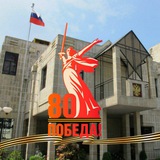Telegram Group »
United States »
Генеральное консульство России в Калькутте »
Telegram Webview »
Post 1994
Forwarded from Kremlin. News
Vladimir Putin addressed a congress of the Russian Union of Industrialists and Entrepreneurs. Key points:
🔸Russian entrepreneurs have adapted to sanctions, inventing and implementing alternative arrangements for cooperating with international partners. The sanctions became an extra catalyst ushering in positive structural change in the Russian economy.
🔸Far from being temporary or targeted, sanctions and restrictions are a reality of a new development stage that the entire global economy has now entered. They are a tool designed to exert systemic and strategic pressure on Russia: our competitors will always seek to contain our country and undermine its economic and technological capabilities.
🔸There is no point in hoping for the restoration of full freedom of trade and cash flows, as there is none in counting on Western tools for protecting the rights of investors and entrepreneurs. It is crucial for Russian businesses to be flexible, seek new markets and secure footholds there, develop homegrown technological solutions, and establish cooperation with reliable partners.
🔸Russia is strengthening its sovereignty in all the areas needed to ensure business operations, including by developing transportation, logistics, and financial and payment infrastructure. Only the countries capable of ensuring true, full fledged sovereignty for themselves will be able to provide a rapid and steady growth for the benefit of their people.
🔸Russia is pivoting towards promising global markets, and this is a lasting long-term trend that will be reinforced in part by the BRICS development platform currently in development. This platform will include resource, technological, personnel, financial, trade, and investment components.
🔸The interests of Russian companies and industries, and their employees come first, and it is with this in mind that Russia will consider the potential return of foreign companies, who left the country under political pressure from their respective national elites, to the Russian market.
See more on the Kremlin’s official website.
🔸Russian entrepreneurs have adapted to sanctions, inventing and implementing alternative arrangements for cooperating with international partners. The sanctions became an extra catalyst ushering in positive structural change in the Russian economy.
🔸Far from being temporary or targeted, sanctions and restrictions are a reality of a new development stage that the entire global economy has now entered. They are a tool designed to exert systemic and strategic pressure on Russia: our competitors will always seek to contain our country and undermine its economic and technological capabilities.
🔸There is no point in hoping for the restoration of full freedom of trade and cash flows, as there is none in counting on Western tools for protecting the rights of investors and entrepreneurs. It is crucial for Russian businesses to be flexible, seek new markets and secure footholds there, develop homegrown technological solutions, and establish cooperation with reliable partners.
🔸Russia is strengthening its sovereignty in all the areas needed to ensure business operations, including by developing transportation, logistics, and financial and payment infrastructure. Only the countries capable of ensuring true, full fledged sovereignty for themselves will be able to provide a rapid and steady growth for the benefit of their people.
🔸Russia is pivoting towards promising global markets, and this is a lasting long-term trend that will be reinforced in part by the BRICS development platform currently in development. This platform will include resource, technological, personnel, financial, trade, and investment components.
🔸The interests of Russian companies and industries, and their employees come first, and it is with this in mind that Russia will consider the potential return of foreign companies, who left the country under political pressure from their respective national elites, to the Russian market.
See more on the Kremlin’s official website.
👍1
group-telegram.com/consulategeneralkolkata/1994
Create:
Last Update:
Last Update:
Vladimir Putin addressed a congress of the Russian Union of Industrialists and Entrepreneurs. Key points:
🔸Russian entrepreneurs have adapted to sanctions, inventing and implementing alternative arrangements for cooperating with international partners. The sanctions became an extra catalyst ushering in positive structural change in the Russian economy.
🔸Far from being temporary or targeted, sanctions and restrictions are a reality of a new development stage that the entire global economy has now entered. They are a tool designed to exert systemic and strategic pressure on Russia: our competitors will always seek to contain our country and undermine its economic and technological capabilities.
🔸There is no point in hoping for the restoration of full freedom of trade and cash flows, as there is none in counting on Western tools for protecting the rights of investors and entrepreneurs. It is crucial for Russian businesses to be flexible, seek new markets and secure footholds there, develop homegrown technological solutions, and establish cooperation with reliable partners.
🔸Russia is strengthening its sovereignty in all the areas needed to ensure business operations, including by developing transportation, logistics, and financial and payment infrastructure. Only the countries capable of ensuring true, full fledged sovereignty for themselves will be able to provide a rapid and steady growth for the benefit of their people.
🔸Russia is pivoting towards promising global markets, and this is a lasting long-term trend that will be reinforced in part by the BRICS development platform currently in development. This platform will include resource, technological, personnel, financial, trade, and investment components.
🔸The interests of Russian companies and industries, and their employees come first, and it is with this in mind that Russia will consider the potential return of foreign companies, who left the country under political pressure from their respective national elites, to the Russian market.
See more on the Kremlin’s official website.
🔸Russian entrepreneurs have adapted to sanctions, inventing and implementing alternative arrangements for cooperating with international partners. The sanctions became an extra catalyst ushering in positive structural change in the Russian economy.
🔸Far from being temporary or targeted, sanctions and restrictions are a reality of a new development stage that the entire global economy has now entered. They are a tool designed to exert systemic and strategic pressure on Russia: our competitors will always seek to contain our country and undermine its economic and technological capabilities.
🔸There is no point in hoping for the restoration of full freedom of trade and cash flows, as there is none in counting on Western tools for protecting the rights of investors and entrepreneurs. It is crucial for Russian businesses to be flexible, seek new markets and secure footholds there, develop homegrown technological solutions, and establish cooperation with reliable partners.
🔸Russia is strengthening its sovereignty in all the areas needed to ensure business operations, including by developing transportation, logistics, and financial and payment infrastructure. Only the countries capable of ensuring true, full fledged sovereignty for themselves will be able to provide a rapid and steady growth for the benefit of their people.
🔸Russia is pivoting towards promising global markets, and this is a lasting long-term trend that will be reinforced in part by the BRICS development platform currently in development. This platform will include resource, technological, personnel, financial, trade, and investment components.
🔸The interests of Russian companies and industries, and their employees come first, and it is with this in mind that Russia will consider the potential return of foreign companies, who left the country under political pressure from their respective national elites, to the Russian market.
See more on the Kremlin’s official website.
BY Генеральное консульство России в Калькутте
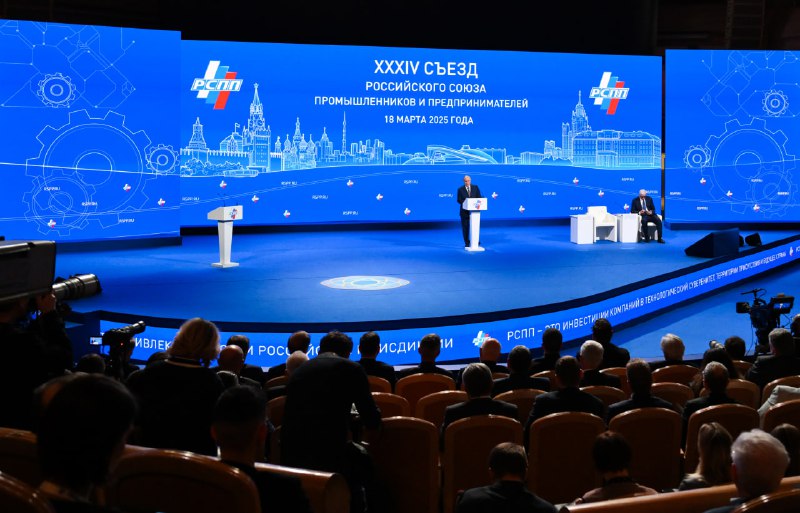
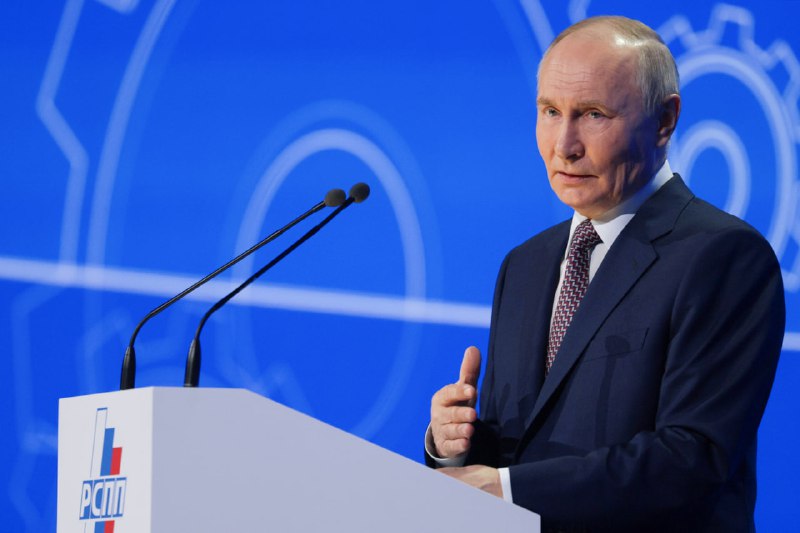
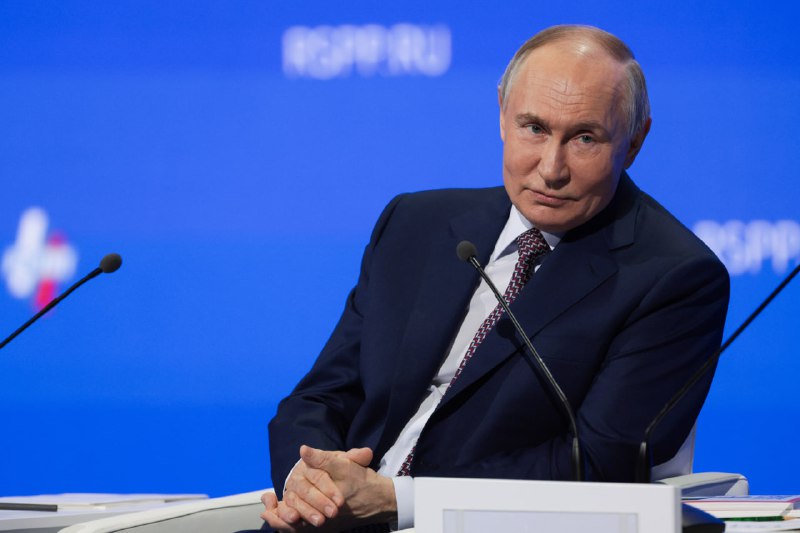
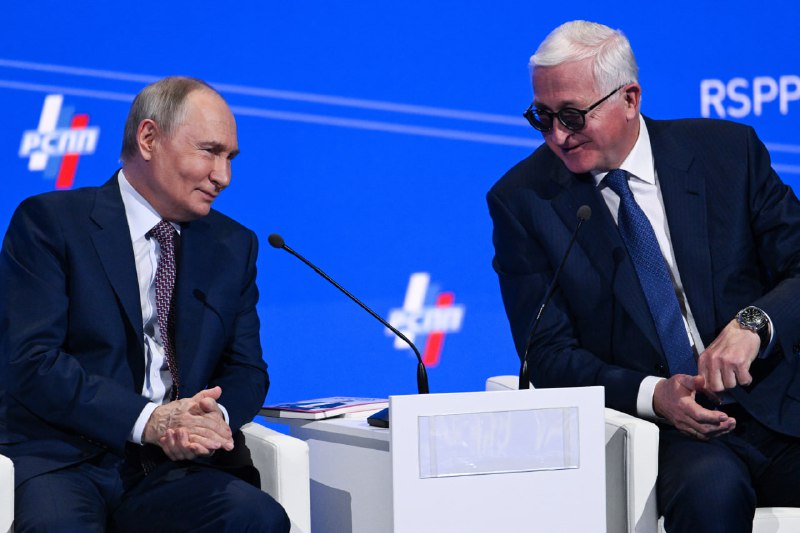
Share with your friend now:
group-telegram.com/consulategeneralkolkata/1994
